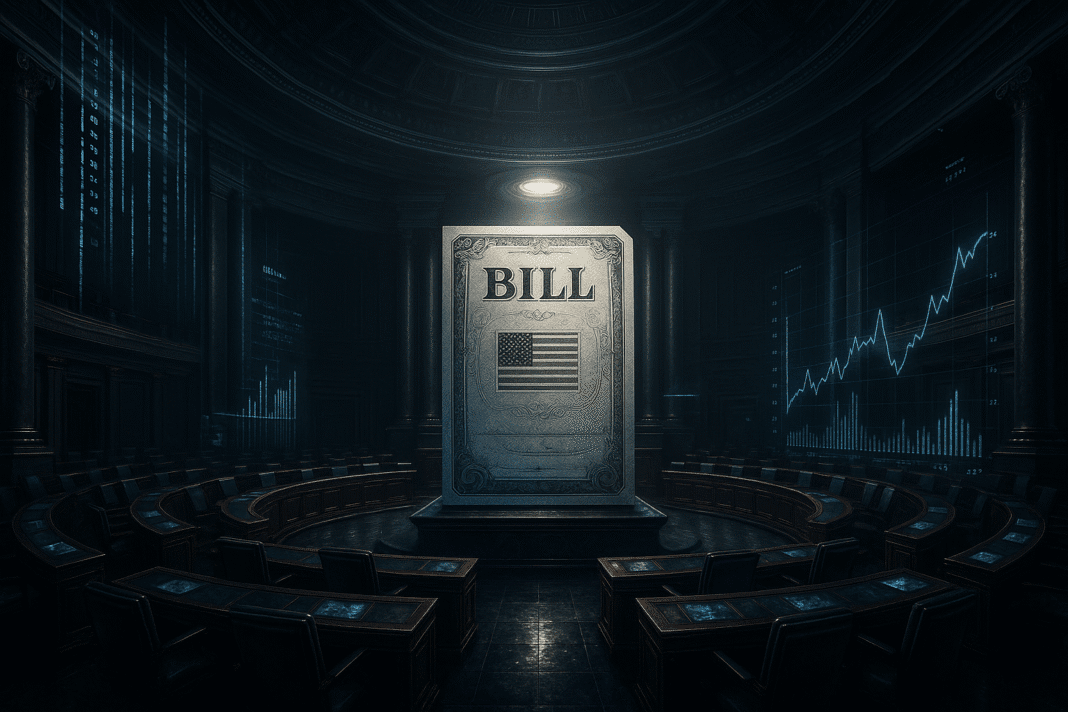The passage of President Donald Trump’s “One Big Beautiful Bill Act” marks a pivotal moment in U.S. domestic policy, promising sweeping changes to taxation, social programs, and federal spending. As the bill heads to the House of Representatives after a razor-thin Senate vote, it’s crucial to understand its provisions, the political dynamics at play, and the long-term implications for the nation.
What Is Trump’s “One Big Beautiful Bill Act”?
Trump’s “One Big Beautiful Bill” is an expansive legislative package that:
- Extends and expands Trump-era tax cuts, primarily benefiting high-income earners and corporations.
- Slashes funding for social safety net programs such as Medicaid and SNAP (Supplemental Nutrition Assistance Program).
- Boosts spending on border security and deportation operations.
- Includes targeted tax breaks and incentives for real estate and hospitality industries, sectors where Trump has longstanding business interests.
The bill was passed in the Senate with a narrow 51-50 margin, Vice President JD Vance casting the tie-breaking vote after a marathon 27-hour session. It now faces a decisive vote in the House, with Trump pushing for final passage by July 4, aligning the legislation with Independence Day symbolism.
Key Provisions and Controversies in Trump’s Bill
| Provision | Supporters’ Viewpoint | Critics’ Concerns |
|---|---|---|
| Tax Cuts | Stimulate investment, job growth, and economic competitiveness. | Disproportionately benefit the wealthy; increase inequality. |
| Social Safety Net Cuts | Reduce government spending, promote fiscal responsibility. | Harm vulnerable populations, especially low-income families and children. |
| Border Security Funding | Strengthen national security, address illegal immigration. | Divert resources from domestic needs; human rights concerns. |
| Industry-Specific Incentives | Revitalize American business, especially tourism and real estate. | Potential self-enrichment for Trump; undermine clean energy and tech sectors. |
Notably, the Congressional Budget Office and independent analysts project that the bill will increase the national debt by $3.3 trillion over the next decade. This has sparked alarm among fiscal conservatives and deficit hawks, as well as moderate Republicans and Democrats.
Political Reaction to the One Big Beautiful Bill Act
The bill has exposed deep divisions within the Republican Party:
- Three Republican senators broke ranks to oppose the bill in the Senate.
- House Speaker Mike Johnson is under pressure to secure enough votes amid travel delays and internal dissent, with only a slim margin for defections.
- Elon Musk has emerged as an outspoken critic, citing the bill’s impact on the national debt and the elimination of electric vehicle subsidies. Musk has threatened to back primary challenges against Republicans who support the bill and has floated the idea of launching a centrist political movement.
Despite these challenges, the Trump administration is aggressively lobbying House members, emphasizing the bill’s interconnected provisions and its role in achieving a “balanced budget over time”.
How the Bill impacts the U.S. Economy and Society
Supporters argue the One Big Beautiful Bill Act will:
- Spur economic growth through tax relief and business incentives.
- Enhance border security.
- Streamline federal spending.
Critics warn of:
- Increased income inequality.
- Reduced support for low-income Americans.
- Long-term fiscal instability and potential inflation due to ballooning debt.
- Alienation of key Republican constituencies, including fiscal conservatives and younger voters.
The bill’s inclusion of industry-specific tax cuts for real estate and hospitality has drawn accusations of self-dealing, further fueling controversy and public scrutiny.
What’s Next for the One Big Beautiful Bill Act in the House?
The House of Representatives is expected to vote on the Trump’s budget bill by July 4. The outcome remains uncertain, with both parties mobilizing for a high-stakes showdown. The White House is urging swift passage, while opposition forces—including influential business leaders and grassroots activists—are intensifying their campaigns.
Trump’s “Big Beautiful Bill” is more than a legislative package—it’s a test of political will, economic philosophy, and the future direction of the United States. As the House vote approaches, the nation watches closely, aware that the outcome will shape American society and governance for years to come. In an era marked by global conflicts, the impact and implications of this bill will be tested over time—especially as even the United States recently felt compelled to deploy B-2 bombers to Iran amid escalating tensions.




